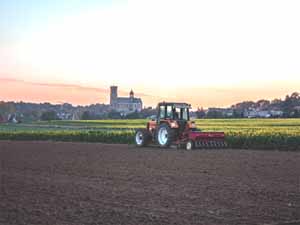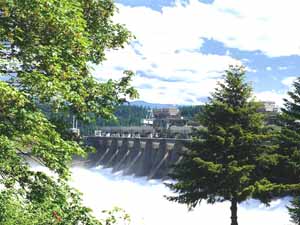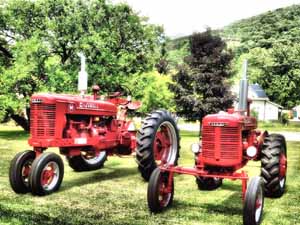Do you know why farmers should implement conscious water usage practices in modern farming? If you are conscious about this, then you are in the right place. Here we are trying to discuss more about why farmers should implement conscious water usage practices in modern farming.
A thorough management plan is essential to ensuring that farmers and livestock producers have access to adequate water supplies since agriculture faces a variety of water-related difficulties. Water resources are under stress in the UK because of climate change and population expansion, and the agricultural industry will likely experience more competition for these resources in the years to come.
Future water supply will vary across the UK and over time, even though the changes might not be uniform, which will inevitably result in restrictions during periods of extreme heat and drought. Consequently, securing an appropriate water allocation for farming maintains a position of high significance.
Without adequate water resources, the agricultural industry will struggle to meet the increasing demand for food, potentially leading to food shortages and higher prices. Additionally, the effects of climate change, such as unpredictable weather patterns and an increased frequency of extreme events, further highlight the need for effective water management strategies in order to ensure the resilience and sustainability of farming practices in the UK.
Where do Farmers Get Water?
Farmers in the UK rely on agricultural water sources, which can be obtained through a water utility company or privately, generally from boreholes. Typically, the public water supply is the primary source of water for the food producing industry. However, high temperatures and unplanned disruptions can cause the water flow to decline or stop entirely.
In these circumstances, water services provide a quick and efficient solution by momentarily restoring the water supply. Boreholes in the London area can dry up when there is a prolonged lack of rainfall, which puts pressure on the main water supply.
This may lead to water restrictions and occasionally necessary repair work, significantly reducing the amount of water available for agricultural uses. Find more facts about water usage by visiting Utility Bidder.

Methods to Save Water on Farms
Farmers may save water on their farms in several practical ways, including:
Use Effective Irrigation
Water wastage may be considerably reduced by using effective irrigation techniques like drip irrigation, micro-sprinklers, or precision sprinklers. These methods reduce evaporation and runoff by directly delivering water to the plant roots.
Monitoring the Soil’s Moisture Content
This should be done on a regular basis as it enables farmers to decide when irrigation is required. Farmers may conserve water, reduce waterlogging, and stop the leaching of nutrients by avoiding over-irrigating and irrigating only when necessary.
Additionally, monitoring the soil’s moisture content can also help farmers optimize water usage and prevent water stress in plants. By understanding the moisture levels, farmers can adjust irrigation schedules and amounts accordingly, promoting healthier plant growth and maximizing water efficiency.
Mulching
By preventing evaporation, organic mulch, such as straw or wood chips, applied around plants helps maintain soil moisture. Additionally, mulching reduces weed development, which reduces competition for water supplies.
Crop Rotation and Diversification
These techniques can help you make the best use of your water resources. Because different crops have different water needs, effectively managing agricultural successions helps prevent overreliance on water-intensive crops and encourages effective water use. Furthermore, crop rotation and diversification also promote soil health and reduce the risk of pest and disease outbreaks.
By alternating crops, you can disrupt the life cycles of pests and pathogens, reducing the need for chemical interventions that may further deplete water resources. Additionally, diversifying your crops can enhance overall ecosystem resilience and contribute to sustainable agricultural practices.
Crop Selection that is Water Efficient
Choosing crop types that are compatible with the local climate and need little water will help farms use less water overall. Crops with low water requirements or tolerance to drought can help save water resources. These crops can also reduce the risk of water scarcity and increase farmers’ resilience to climate change.
Furthermore, implementing efficient irrigation techniques such as drip irrigation or precision farming can optimize water usage and minimize wastage in agricultural practices.
Rainwater Collection Devices or Reservoirs
Installing rainwater collection devices or reservoirs to store water during times of heavy precipitation can help supplement water supplies during dry seasons. When there are insufficient natural water supplies, this stored water can be used for agriculture.
Regular Inspection and Maintenance
Regular inspection and maintenance of irrigation systems, including pipes, valves, and sprinklers, ensures that water is distributed efficiently and helps to avoid leaks. Water loss can be reduced by promptly fixing any problems or leaks.
Water Management Planning
A thorough water management plan created specifically for the needs of the farm helps direct effective water usage. This strategy can involve establishing water consumption goals, planning irrigation according to the weather, and putting water-saving practices into action.
Implementing water-efficient technologies and practices, such as drip irrigation or soil moisture sensors, can further optimize water usage on the farm. Additionally, educating farmers and workers about the importance of water conservation and providing training on proper irrigation techniques can contribute to a more sustainable water management plan.
Education and Educating
Educating and educating farmers on water-efficient methods and technologies can raise their awareness of them and encourage them to use them. A great resource may be shared by working together with agricultural extension agencies and exchanging best practices.
Monitoring and Benchmarking
Tracking usage, comparing it to industry norms, and monitoring water use on the farm might reveal opportunities for improvement. Farmers may make educated judgments and constantly improve their water-saving efforts by regularly evaluating data on water consumption.
Farmers may support sustainable water usage and guarantee the sustainability of their agricultural enterprises by using these water-saving strategies and effective water management methods.
Best Water Usage
Adopting sensible water usage techniques in modern farming is essential for a number of reasons. Farmers must implement comprehensive management plans to provide access to adequate water supplies, considering the growing competition for water resources brought on by climate change and population increases.
Water is a finite resource, so saving it is crucial to ensuring its availability for both present and future generations. Additionally, water conservation improves drought resilience, lowers environmental damage, encourages regulatory compliance, and fulfills social obligations.
Farmers can conserve water by using effective irrigation methods, keeping track of soil moisture, using mulch, practicing crop rotation and diversification, choosing crops that require little or no irrigation, collecting rainwater, maintaining irrigation systems, putting water management plans into place, and fostering awareness and education. Farmers help conserve water by using these water-saving techniques.





